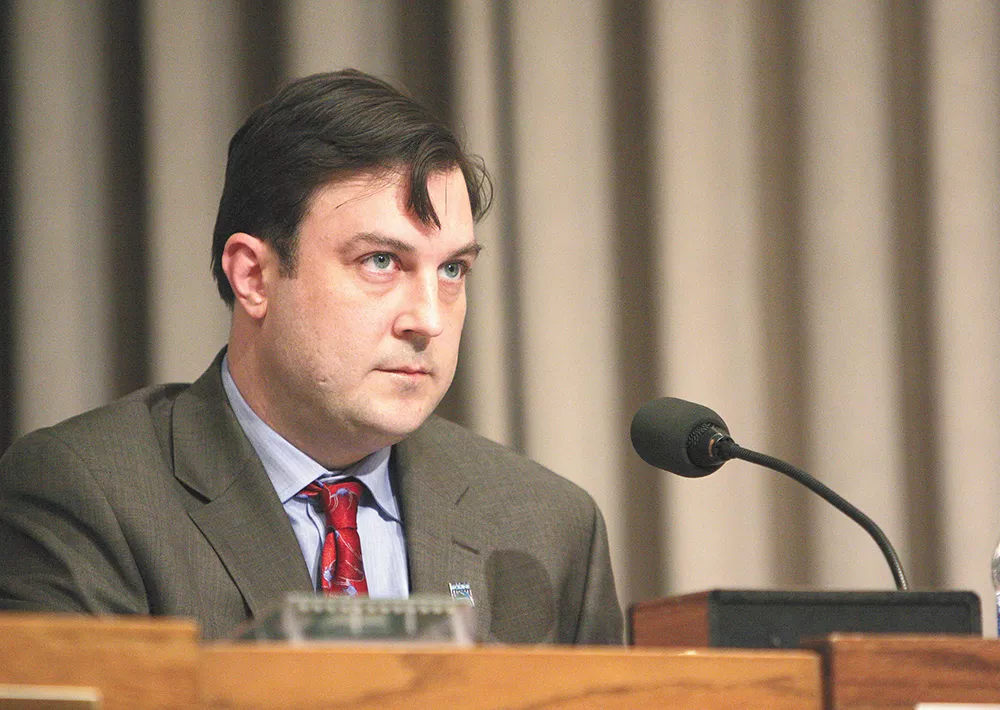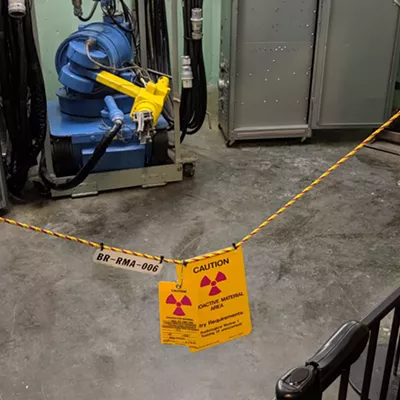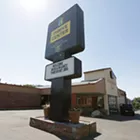After nearly two years of negotiations, word came from City Hall last week that a tentative agreement had been reached between the Spokane Police Guild and Mayor David Condon's bargaining team.
"TENTATIVE POLICE CONTRACT STRENGTHENS OVERSIGHT," announced a city press release Friday.
Whether oversight has actually been strengthened is now a matter of debate.
"The city did a horrible job negotiating the TA [tentative agreement]," says Council President Ben Stuckart. "The TA alone ... just doesn't meet what the voters wanted, what everybody's been working toward for five goddamn years. ... If we approve that agreement, we're done for."
Condon, who had campaigned on expanded authority for Spokane's police ombudsman, said Friday that the agreement was a step in the right direction. The agreement states that both sides believe it meets the requirements of Proposition 1, which voters overwhelmingly passed earlier this year to make the ombudsman "totally independent" according to the City Charter.
But in the proposed police contract, the ombudsman would still lack authority to open his own investigations. In fact, language changes from the previous contract are few. As under the current contract, the ombudsman would be limited to observing and asking questions during internal affairs investigations. In one substantial change, the agreement establishes a commission to have the final say in cases where the ombudsman and police chief disagree on whether an internal affairs investigation was satisfactory.
In light of what wasn't included in the agreement, the mayor and councilmembers touted a forthcoming ordinance intended to flesh out the powers of the ombudsman and the commission and fill in any gaps.
But now hopes for that supplemental ordinance appear to be losing ground.
"There are issues raised in the Ordinance that appear to me to fall under the category of proposals that the City had on the table but that were not included in the TA," guild lawyer Hillary McClure wrote in an email to an assistant city attorney last week. "As a result we are in the difficult position that it feels like as soon as we made the agreement, the City is asking for things that the City had removed from the table to get the TA done."
Among a list of concerns, McClure writes that the role of the ombudsman commission is being expanded beyond what the parties agreed to in negotiations and that the guild opposes granting the ombudsman "non-disciplinary" investigative authority. Because state law requires employers to bargain for things that affect discipline of employees, the guild has argued that any expansion in powers for the ombudsman must be bargained for in contract negotiations.
For its part, the city made the same argument last month when Councilman Steve Salvatori introduced an ordinance that would have empowered the ombudsman outside of the bargaining process. The city had hired a Seattle-based law firm, which concluded that investigative powers for the ombudsman must be negotiated and not done through ordinance to avoid an unfair labor practice complaint from the guild.
"Even if it's something they had to negotiate for, why didn't they?" asks Rick Eichstaedt, executive director of the Center for Justice.
City spokesman Brian Coddington says the confidentiality agreement that kept the negotiations secret limits the administration's ability to disclose what was or wasn't "on the table" during negotiations. But he and the mayor say the agreement's creation of a new commission appointed by the city council and mayor significantly increases independence.
"It's our position that we have fulfilled the City Charter with the TA," Coddington says.
Ombudsman Tim Burns says the ability to complete investigations outside the department is critical to community perception and trust. Burns says he interprets the language added to the charter by Proposition 1 to mean the authority for his office to be able to open its own investigations, and he's still "cautiously optimistic" the city will get there somehow.
"I think the community has made really clear there are some things you can't compromise on," Burns says. "I would suggest independent investigative authority is one of those things." ♦























